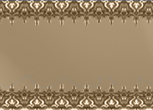We come across these two statements quite often in religious literature, speeches, debate and
discussions:
1. Prophet's words and conduct - the Sunnah, represent an authoritative interpretation of the
revealed text. He was in the best position to interpret the Quran, understand it and
implement it. He is the practical example.
2. "The most authentic book after the Book of Allah (Quran) is Sahih-Al-Bukhari." |
 |
|
|
A man kissed a woman and then came to Allah's Messenger and told him of that, so this Divine
Inspiration was revealed to the Prophet And offer Prayers perfectly at the two ends of the day,
and in some hours of the night; (i.e. (five) compulsory prayers). Verily, the good deeds remove the
evil deeds (small sins). That is a reminder for the mindful.' (11.114). The man said, Is this instruction
for me only?' The Prophet said, "It is for all those of my followers who encounter a similar
situation."
|
Comment: In this hadith, the evil deed is confined to kissing a strange woman and its expiation is
the prayer (good deed) is earned only when we encounter such situation (sabab).
1. Do you believe this to be the “Sabab al nuzul, occasion/reason for the revelation”?
2. When it is Prophetic interpretation and instruction for all Ummah, why haven’t we ever heard
in any talk or read it in any Islamic book?
3. If and when we do hear it, why is it twisted beyond recognition from the original?
4. Isn’t this brazen tampering with the 2nd most authentic text then by Sunnis?
5. Why the Hadith corners were cut severely to make it appear palatable?
|
 |
 |
|
|
Narrated Muhammed bin Abbad bin Jaafar "That he heard Ibn 'Abbas reciting: "No doubt! They fold
up their breasts." (11.5) and asked him about its explanation. He said, "Some people used to hide
themselves while ANSWERING THE CALL OF NATURE in an open space lest they be exposed to
the sky, and also when they HAD SEXUAL RELATION WITH THEIR WIVES IN AN OPEN SPACE
lest they be exposed to the sky, so the above revelation was sent down regarding them."
|
Comment: When God implies beautifully in the verse 11:5, that nothing is hidden from Him, do you
think Ibn Abbas RZ (who is renowned for his knowledge and wisdom) would have offered this
explanation?
|
 |
 |
|
|
I said to `Uthman, "This Verse which is in Surat-al-Baqara: "Those of you who die and leave widows
behind...without turning them out." has been abrogated by another Verse. Why then do you write it
(in the Qur'an)?" `Uthman said. "Leave it (where it is), O the son of my brother, for I will not shift
anything of it (i.e. the Qur'an) from its original position."
|
Comment: One of the 14 branches of prerequisite science (clergy scare-tactics) before
understanding the Quran is “Al Nasikh wal Mansukh” (Abrogating and Abrogated), which in lay
man’s term is “useless verse no longer applicable” (Nauzubillah). Hence, as you can see in this
alleged report an ordinary taba’ee saw the logic more than the 3rd great caliph in favor of tossing the
abrogated ayah out of the Book.
|
 |
 |
| SALAT AL-WUSTA MEANS SILENCE!! |
|
|
We used to speak while in prayer. One of us used to speak to his brother (while in prayer) about his
need, till the Verse was revealed:-- "Guard strictly the (five obligatory) prayers, especially the middle
(the Best) (`Asr) Prayer and stand before Allah with obedience (and not to speak to others during the
prayers)." Then we were ordered not to speak in the prayers.
|
Comment: Just imagine for a moment 20 people small congregation with 10 pair of men talking
mutually about their needs right behind the Prophet’s back in the prayers, for God knows how long
until this command descended? Do you call it a prayer? And why the Prophet himself tolerated this
disturbance and not intervened immediately? This is bare minimum common sense. Now sweep this
alleged hadith and fantastic “sabab” aside and let’s turn to the word “Hafizu” in the ayah which
allegedly taken to mean “stop talking”, no Arabic dictionary will fetch you this meaning. There are
many instances in the Quran where the sudden switch of subject takes place to draw attention and
to pique curiosity of the reader, for instance the switch here from the discourse on divorce to
guarding the prayers and back is astonishing and provocative for its immediate audience - the
wisdom and guidance and the power of the message in just the Quran’s Mushaf arrangement and
order is wonderful unparalleled beauty, Subhan Allah!
|
 |
 |
| SELF-IMPOSED UNLAWFUL THING (66:1)? |
|
|
Honey served by?
Hzt Zainab in her house (Bukhari)
Hzt. Hafsa in her house (Bukhari)
And the conspiring two?
Hzt. Aisha and Hzt. Sa`da bint Zam`a (Bukhari)
Hzt. Aisha and Hzt. Hafsa (Bukhari)
|
Comment: Does this clarify our understanding or confused us further? Besides the irreconcilable
double layer and crisscrossed contradictions, what is baffling is the subsequent ayah, 66:4: You two
[wives] need to repent to God, for your hearts have clearly deviated. But if you band together against
him, then God is his protector, and Gabriel and the righteous believers. In addition, the angels will
come to his support. Such a terrific warning for such a trivial matter? The honey syrup story simply
does not add up. If the Prophet's every word and deed is revelation-based, Matlu (Quran) and ghair Matlu
(Hadith), why was he reprimanded publicly? As it's plain here that when he’s not allowed to make something Haram on himself how and
why his alleged sayings and actions captured 250+ years after his departure are thrusted as binding
law from these grotesque hadith narrations? – An apt question traditionalist simply doesn’t want to
even hear, let alone answer!
|
 |
 |
|
|
The last Verse (in the Qur'an) revealed to the Prophet was the Verse dealing with usury (i.e.
Riba).
|
Comment: The same Bukhari book in chapter of inheritance has this: The last Qur'anic Verse that
was revealed (to the Prophet) was the final Verse of Surat-an-Nisa, i.e., 'They ask you for a legal
verdict Say: Allah directs (thus) About those who leave No descendants or ascendants as heirs....'
(4.176) Does this verse has anything to do with usury (interest)?
|
 |
 |
|
|
This Verse:--"Whether you show what is in your minds or conceal it.." (2.284) was abrogated.
|
Comment: Another abrogation. You’ll be shocked to know that there’s not a single hadith even
allegedly attributed to the holy ProphetSAS where he narrated/quoted to have said so and so verse is
abrogated by so and so other verse. Not one. For the guidance, we’re commanded to follow the
Sunnah of rightly guided companions: one of them is “allegedly” found innovating Tarawih and
forbidding Mut’a, another one adding Juma Adhan and forbidding Hajj Tamattu, and the last
one burning people alive and yet another whole group of them freely repealing and abrogating
dozens of verses of the Quran. Can we imitate them and add/subtract to their list of permissible,
forbiddance and innovation following in their footsteps? The answer given is NO but the fact that
simply cannot go unnoticed from these fantastic reports is that the companions were not following
the ProphetSAS either. We cannot follow them, they were not following him and he did not abrogate a single ayah, yet we’ve a completely independent and new branch of science carved out on the
subject and erected a tall wall and placed before Ummah to scale before touching the Quran. Do you
see the whole (holy) mess?
|
 |
 |
|
|
A man from the companions of Allah's Messenger who I think, was Ibn `Umar said, "The Verse:-
- "Whether you show what is in your minds or conceal it...." was abrogated by the Verse following it."
|
Comment: Look at the wording for God sake! A man from Companion unable to confidently
recognize son of Umar ibn al-KhattabRZ? The holy ProphetSAS used to dictate the verse with divinely
inspired instruction to place the newly revealed verse between so and so or after such and such
verse, we’ve many such Ahadith in this regard. Did Prophet point out abrogated ayahs? If so, why
didn’t he ask the writer to replace the abrogated ayah when the immediate succeeding one is
abrogating it? How strange it is that the verses of Qur’an, which have been declared as abrogated,
continue to remain in the Holy Book. These cancelled Verses continue to be recited. When Qur’an is
memorized, those cancelled verses too are memorized. It is strange and indeed very strange!
|
 |
 |
|
|
The Verse:--"You (true Muslims) are the best of peoples ever raised up for mankind." means, the
best of peoples for the people, as you bring them with chains on their necks till they embrace
Islam.
|
Comment: Yet, Sunni Islam is peaceful. Satan who inspired men who interpolated these reports is
the same dark evil force under whose whispering the bloodletting cults of our times are answering
his call nay fulfilling his primordial promise all along, fancying themselves to be on the rightly guided
path (43:37).
|
 |
 |
|
|
Some people were asking Allah's Messenger questions mockingly. A man would say, "Who is
my father?" Another man whose she-camel had gone astray would say, "Where is my she-camel?”
So, Allah revealed this Verse in this connection: "O you who believe! Ask not about things which, if
made plain to you, may cause you trouble." (5.101)
|
Comment: The very least we can do is read the ayahs 5:101 and 102:
O YOU who have attained to faith! Do not ask about matters which, if they were to be made manifest to
you [in terms of law], might cause you hardship; for, if you should ask about them while the Qur'an is
being revealed, they might [indeed] be made manifest to you [as laws]. God has absolved [you from any
obligation] in this respect: for God is much-forgiving, forbearing. (5:101) People before your time have indeed asked such questions-and in result thereof have come to deny the
truth. (5:102)
Do you recognize the stunning gap between the verses and their fantastic “occasion” stories? Why
do you think Quran is acclaimed unanimously as timeless and universal and continue to amaze
every reader in every generation?
|
 |
 |
| TIME BOUND OR TIMELESS WISDOM? |
|
|
Regarding the Verse: "And among men is he who worships Allah's as it were on the very edge."
(22.11). A man used to come to Medina as if his wife brought a son and his mares produces
offspring. He would say, "This religion (Islam) is good," but if his wife did not give birth to a child and
his mares produced no offspring, he would say, "This religion is bad."
|
Comment: Both 22:8 and 11 are beautiful universal and timeless examples sketched to attract
attention and cleanse believers from trading low and short-term gains in the religion.
And yet, among men there is many a one that argues about God without having any knowledge [of
Him], without any guidance, and without any light-giving revelation – (22:8)
And there is, too, among men many a one who worships God on the border-line [of faith]: thus, if good
befalls him, he is satisfied with Him; but if a trial assails him, he turns away utterly, losing [thereby both]
this world and the life to come: [and] this, indeed, is a loss beyond compare! (22:11)
We see in the Quran numerous times the phrase, “Mere fables of the men of old times” uttered by
its detractors. It’s an enormous tragedy indeed that the believers are upholding these fables as
necessity to comprehend its message! Alas!
|
 |
 |
|
|
Once I was with the Prophet in the mosque at the time of sunset. The Prophet said, "O Abu
Dharr! Do you know where the sun sets?" I replied, "Allah and His Apostle know best." He said, "It
goes and prostrates underneath (Allah's) Throne; and that is Allah's Statement:-- 'And the sun runs
on its fixed course for a term (decreed). And that is the decree of All-Mighty, the All-Knowing....'
(36.38)
|
Comment: There’s no mention of setting of the Sun in the ayah as you can see in the above
translation which is part of the hadith itself. This explanation defies firmly established science. Abu
Dawud tradition has subtle humiliation and insult: I was sitting behind the Messenger of Allah
who was riding a donkey while the sun was setting. He asked: Do you know where this sets? I
replied: Allah and his Apostle know best. He said: It sets in a spring of warm water (Hamiyah).
|
 |
 |
|
|
If someone says to his wife, "You are unlawful to me." he must make an expiation (for his oath). Ibn
`Abbas added: There is for you in Allah's Messenger, an excellent example to follow.
|
Comment: Like all other if this hadith is not rejected categorically, one needs to believe the blessed
ProphetSAS practiced “Zihar” (a condemned Jahiliya custom cleansed by the Quran, see 58:1-4)
and also have to reconcile the rebuked act with exemplary conduct highlighted in the ayah 33:21 as
part of the very same hadith. Let’s read this very short, famous and oft-repeated ayah 33:21 in its
entirety
In truth, in (the sacred person of) Allah’s Messenger (blessings and peace be upon him) there is for you a
most perfect and beautiful model (of life) for every such person that expects and aspires to 1 (meeting)
Allah and 2 the Last Day and 3 remembers Allah abundantly. Did you see Zihar from the 3 outstanding
traits in the ayah as Prophet’sSAS conduct (Ma’azAllah)?
|
 |
 |
|
|
I asked Aba Salama, "Which Sura of the Qur'an was revealed first?" He replied, "O you, wrapped-up'
(Al-Muddaththir)." I said, "I have been informed that it was, 'Read, in the Name of your Lord who
created........ (i.e. Surat Al-Alaq).
|
Comment: Not only content and wisdom but the divine order of the Quran is severely undercut in
several so called “Authentic Ahadith”
|
 |
 |
|
|
I asked Ubai bin Ka`b, "O Abu AlMundhir! Your brother, Ibn Mas`ud said so-and-so (i.e., the two
Mu'awwidh-at do not belong to the Qur'an)." Ubai said, "I asked Allah's Messenger about them,
and he said, 'They have been revealed to me, and I have recited them (as a part of the Qur'an)," So
Ubai added, "So we say as Allah's Messenger has said."
|
Comment: Ibn MasudRZ, another exalted, wise and knowledgeable companion, is made to join the
ranks and club of companions who allegedly undermined and cast doubts about Kitabullah!
|
 |
 |
|
|
The Prophet was asked about donkeys and he replied, "Nothing has been revealed to me
regarding donkeys except this comprehensive Verse which includes everything: "So whoever does
good equal to the weight of an atom (or a smallest ant) shall see it; And whoever, does evil equal to
the weight of an atom or a smallest ant) shall see it.' (99.7-8)
|
Comment: Nothing? Please read 2:259, 16:8, 31:19 and 74:50 ayahs, they are about literal
DONKEY and its traits although whoever fails to grasp the wider wisdom in these ayahs and fails to
cultivate God-fear before every deed, is definitely worst creature than a DONKEY and that is
perhaps what the holy Prophet SAS is referring the questioner to.
Verily, the vilest of all creatures in the sight of God are those deaf, those dumb ones who do not use
their reason. (Anfal, 8:22)
|
 |
 |
|
|
These were just a handful from 498 ahadith found in this chapter. Eliminating the irrelevant and the
repetitions the percentage of the Quran (6236 total ayahs) allegedly explained by the ProphetSAS by
his words and deeds would amount to only 3.99%, all thanks and praise to God that whoever
fabricated these fantastic “Asbab al-Nuzul stories” left 96.1% of the Quran without Asbab!
As you have seen, “the proof is in the pudding”. The slogan “Hadith explains the Quran” or “how the
Prophet understood and applied the Quran” is nothing but blind emotional sentimental advocacy
echoing for centuries. Any secondary source that attempts to complete or clarify what is already perfect
will only end up corrupting it. Isn’t erecting 39 unread copious Canonical Hadith Books (not to
mention each of their “Sharah” and tomes of supplementary literature) as road blocks between ordinary
Muslim and the glorious Quran tantamount to “blocking the message of the Quran”, a crime
repeatedly warned in the Quran itself with severe punishment?
CANONICAL SIHAH SITTA TABLE
|
Comment: When all the ahadith stitched together cannot capture complete Prophet’s Salah, the most essential
worship he lead and repeated 5 times a day in front of thousands of growing community of believers
vying and dying to capture and cherish for lifetime a glimpse of their beloved spiritual healer, then one
can only imagine the fate of other less important things!
What have certain voluminous secondary sources achieved? What was their purpose?
Was it a real attempt to preserve salvaged history and traditions by later men? Or could it also be one
wonders, a subliminal, yet intentional attempt to change the perception of reality to such a degree that
despite the fact that there was a plethora of information, no one could come to sensible deductions?
If the Quran could not be understood without the Ahadith corpus, either the early rulers committed a
gross injustice of not preserving what was necessary for religion, or they deemed it unnecessary. What
do you think, they allowed these reports to spread on their watch?
|
 |
 |
| HADITH CRITERION IN HADITH – REJECTED! |
|
|
Abu Yusuf [d. 183] records in al-Radd ‘ala Siyar al-Awza‘i: "The Prophet said: 'The Hadith
about me will spread. So, what comes to you about me and is in agreement with the Qur’an is
from me and what comes to you about me and is in conflict with the Qur’an is not from
me'"
Shafi‘i in his al-Risalah records the following Hadith: "The Prophet said: 'After my death you
will split up on the basis of different opinions. When something reaches you which is attributed
to me, compare it with the Qur’an; when it corresponds with the Book, it is from me; that
which is at variance with it is not from me.'"
Abu Yusuf [d. 183] accepted this Hadith as authentic but Shafi‘i [d. 204] rejected it, calling it
weak.
|
|
 |
| The gymnastics started at the onset itself, no wonder the Furqan as Furqan never made it to the
long list of “Hadith scholars, (Muhaditheen’s)”, self-erected criteria!!
|








